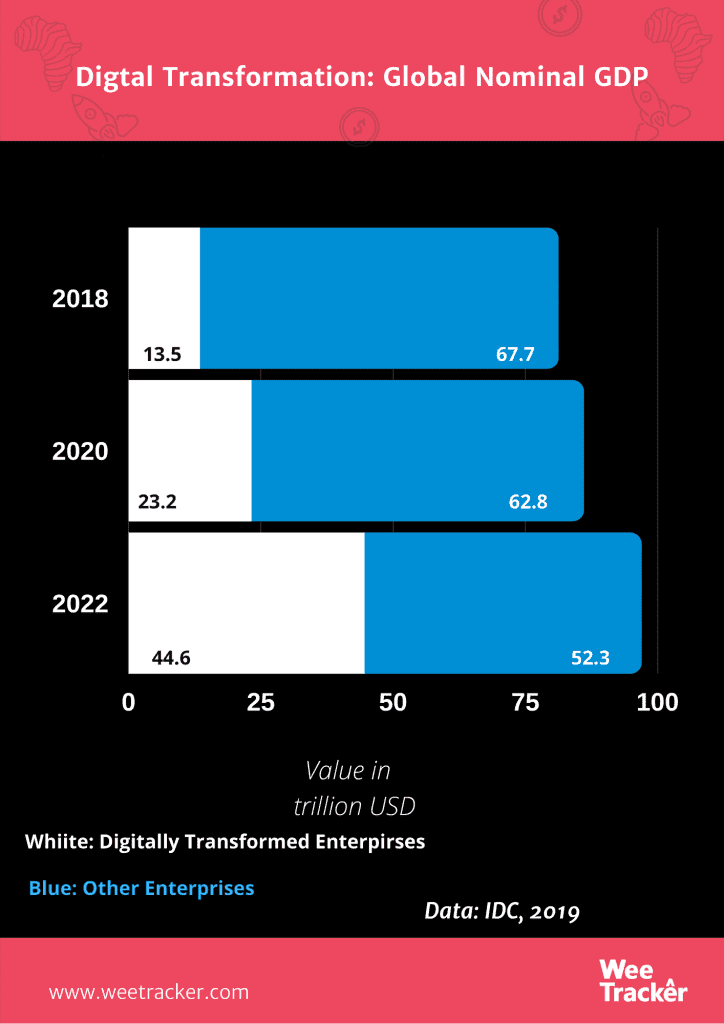A Troubled Chinese Tech Firm Built A Multimillion-Dollar Data Center For Cameroon

A data center said to be the biggest of its kind in the sub-region of Central Africa has been unveiled in Cameroon. The Tier III technological infrastructure dubbed The Zamengoe was built by a Chinese consortium that includes Huawei.
China Written All Over
China’s contribution to the infrastructural development of Africa is no one-day story. Despite Beijing’s influence in the continent being challenged, especially in the coronavirus times, the Asian superpower has shown no signs of slowing down with its into-Africa ambition.
The country continues to pour billions of dollars into the continent, having already outdone other world powers’ scramble to counter its influence in the region.
The 3,019 metre square data center, for instance, is valued at USD 15 Mn and has a capacity of 2,000 terabytes. The facility’s construction was completed by the China Shenyang International Cooperation, while the financing was done via the Exim Bank of China.
The project’s execution was shouldered by Huawei Technologies—the Shenzhen-headquartered tech firm whose 5G business vertical has come under global fire, thanks to the United States.
The Zamengo project consists of 4 apartments, a 400 meter square server room, a supervision quarter, and 8 workstations. The multi-million dollar facility also has an access management system, a 440KW automated energy management system and surveillance cameras among others.
Also known as Camtel NBN II, it will host Cameroon’s government agencies, educational bodies, telcos, financial institutions, retailers, and, hopefully hyperscalers.
The Africa Data Center Story
Africa currently has about 85 data center operators across its 54 countries. Around 80 built-for-purpose MTDC facilities exist at the tier II standard or above.
That means that the continent accounts for some 5 percent of the world’s GDP and broadband base, but below 1 percent of the multi-tenant data center (MTDC) capacity globally.
According to a report, African colocation demand is rising 2 to 3 times faster than the supply. Recent data center expansion in Africa has been strong and has come in spurts.
Data center colocation white space is now 2.5 times bigger than its 2010 levels, with the incremental upticks coming in 2012, and most particularly 2014 when new data centers became operational in the continent’s largest markets—South Africa and Nigeria.
In comparison to the lot of other data hubs, the amount of center area in square meters in Africa—home to 1.3 billion people—is in semblance to that of Paris or Amsterdam—either of which serve an economy of 12 million people. That translates into an “Africa needs to do much better” cliché, also because there is room and necessity for transformation.

The African demand for data center colocation services has been strong, buoyed by gradually improved levels of connectivity and surging volumes of data traffic.
With digitization hurrying its feet, the drivers of demand have been in abundance. The continent’s digital journey is going at a frenetic pace, making it need matching connectivity, servers, power and connectivity.
Not The First Time
Other data center operators in Cameroon are from mobile telecom company MTN and the country’s postal service, Campost, whose USD 52 Mn facility was also funded by the Export-Import Bank of China on a concessional loan basis.
Huawei can be said to be the poster child for Chinese tech investments in Africa over the years. In April 2019, the company agreed to deliver a smart city, surveillance project and data center in Kenya, a mega project tuning to a USD 172.2 Mn total.
Known as the Konza Technology City and still in the works, most of its financing are from Chinese-backed concessional loans that offer better rates than conventional credit facilities.
Huawei is to also build a National Cloud Data Center, Smart ICT Network, Public Safe City and Smart Traffic Solution, as well as a Government Cloud and Enterprise Service in the East African country.
In 2017, Zambia—the poster child for the good, bad and ugly of the China-Africa story—joined hands with the same company to establish a USD 75 Mn data center. The project is part of the Smart Zambia project, through which it hopes to achieve a digital economy by the turn of 2030.
The main reason Huawei’s influence in the world has been questioned and contested is that the Trump administration is convinced the tech firm is a telescope through which China spies on the world.
In the past, the company has been accused of involving with cyber spying in consortium with African political strongmen. Being that data centers are a catalyst for economic transformation across Africa, there is only little doubt that Huawei will continue wielding the pricy scepter of the attractive market.
Featured Image: iAfrikan